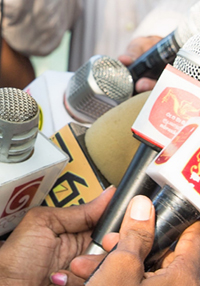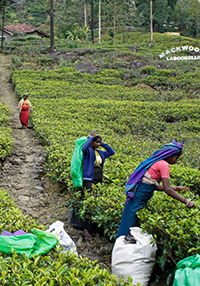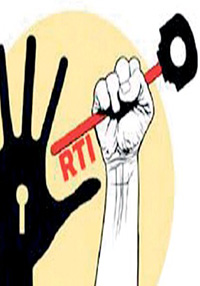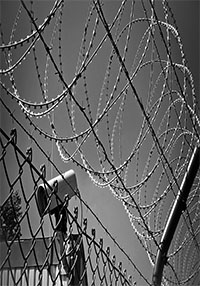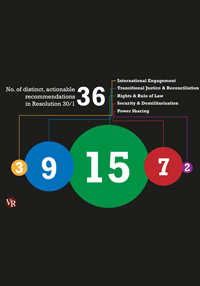මැතිවරණ සමයක දී මාධ්ය නියාමනය කිරීම සදහා මාර්ගෝපදේශයන් නිකුත් කිරීමෙහි ලා ශී්ර ලංකාවේ මැතිවරණ කොමිෂන් සභාව මෙරට ව්යවස්ථාවෙන්ම බලගන්වා තිබේ. මැතිවරණ සමයක දී මාධ්ය නියාමනය සම්බන්ධයෙන් වර්තමානයේ පවත්නා කතිකාවත වඩාත්ම කේන්ද්රගතව තිබෙන්නේ රාජ්ය මාධ්යයන් නියාමනය කිරීම සදහා මෙම මාර්ගෝපදේශයන් භාවිතාවන ආකාරය පිළිබදවය. නමුත් එපමණකින් සීමා නොවී මැතිවරණ සමයක දී, පෞද්ගලික හිමිකාරීත්වයක් ඇති මාධ්ය නියාමනය කිරීමට පවා ශී්ර ලංකා ව්යවස්ථාවෙන් මැතිවරණ කොමිෂන් සභාව බලගන්වා තිබෙන ආකාරය මෙම දැනුම්වත් කිරීමේ සටහනින් අධ්යනය කෙරේ.
The Election Commission of Sri Lanka is constitutionally empowered to regulate the media during an election period by issuing media guidelines.The present discourse on media regulation during elections focuses on how these guidelines have been used to regulate state-owned media. This briefing note examines how the Election Commission is also constitutionally empowered to regulate the privately-owned media during an election period.
2018 වසරේ ඔක්තෝම්බර් මාසයේ දී, කොටස් වෙළඳපොලේ සිදුකරන සේවක අර්ථසාධක අරමුදලේ ආයෝජන නැවත වරක් පුළුල් කරන බව මහ බැංකුව විසින් නිවේදනය කළේය. මහ බැංකුව විසින් එම තීරණය ගැනීමට හේතු ලෙස ඉදිරිපත් කරන ලද කාරණා දෙකම විශ්ලේශනාත්මක වශයෙන් දෝෂ සහිත බවත්, එබැවින් සේවකයින්ගේ විශ්රාමික ඉතිරි කිරීම් අහිතකර බලපෑමකට ලක්වීමේ නව අවදානමක් ඇතිවී තිබෙන බවත් මෙම විදසුන පෙන්වා දෙයි.
Statelessness is a phenomenon that has deprived numerous individuals of their dignity, rights and sustainable development. In Sri Lanka, a large population of Tamils residing in the Hill Country was deprived of their citizenship in 1948. Between the 1960s and early 2000s members of the Hill Country Tamil community had their citizenship restored. The study aims to contribute towards a deeper understanding of the developmental challenges faced by the community, and the importance of ensuring that the granting of citizenship is effective, and meaningful.
වසර 2016 අගෝස්තු මස ශී්ර ලංකා පාර්ලිමෙන්තුව විසින් 2016 අංක 12 දරණ තොරතුරු දැනගැනීමේ අයිතිය පිළිබද පණත සම්මත කරන ලදී. පුරවැසියන්ට රාජ්ය තොරතුරු වෙත ප්රවේශ වීමට අවස්ථාව ලබාදීම හරහා ඔවුන්ව කි්රයාකාරී ජන ජීවිතයකට හුරු කිරීමත්, ඒ තුළින් රජය සහ රාජ්ය ආයතන තම එදිනෙදා කටයුතුවල දී වඩාත් විනිවිද භාවයෙන් සහ වගවීමෙන් කි්රයා කරන සංස්කෘතියක් නිර්මානය කිරීමත් පණත හඳුන්වාදීමේ අරමුණ විය.
The President issued a set of Emergency Regulations on 22 April 2019 in the aftermath of the Easter Sunday attacks in Sri Lanka. This briefing note explains the contents of the Emergency Regulations concerning the ‘control of publications’, and certain other regulations relevant to publication.
This is Verité Research’s latest study on the Sri Lankan government’s commitments on reconciliation and accountability. The 40th UNHRC Session began in February 2019, and Sri Lanka’s progress in implementing Resolution 30/1 will be taken up on 20 March 2019. This report analyses the government’s progress in fulfilling all 36 commitments made in UNHRC Resolution 30/1, as at March 2019.
The Civil Society Organization Sustainability Index (CSOSI) assesses the sustainability of the CSO sector across several countries in different regions around the world. Since its inception in 1997, it has expanded from covering 18 countries in the Europe and Eurasia Region, to covering a total of 71 countries in 2017, in regions including the Middle East, sub-Saharan Africa and Asia. By using standard indicators and collecting data each year, the CSOSI enables users to track developments and identify trends in the CSO sector over time while allowing for cross-country and cross-region comparison. It is used by CSO advocates, development partners, and academics to assess international and regional trends in the civil society sector and to identify common obstacles impeding the sector’s sustainability, such as the legal environment, organizational capacity, and financial viability. This is the fourth time Sri Lanka is participating in the index. Verité Research is the local implementing partner for this initiative.
The Civil Society Organization Sustainability Index (CSOSI) assesses the sustainability of the CSO sector across several countries in different regions around the world. Since its inception in 1997, it has expanded from covering 18 countries in the Europe and Eurasia Region, to covering a total of 71 countries in 2017, in regions including the Middle East, sub-Saharan Africa and Asia. By using standard indicators and collecting data each year, the CSOSI enables users to track developments and identify trends in the CSO sector over time while allowing for cross-country and cross-region comparison. It is used by CSO advocates, development partners, and academics to assess international and regional trends in the civil society sector and to identify common obstacles impeding the sector’s sustainability, such as the legal environment, organizational capacity, and financial viability. This is the fourth time Sri Lanka is participating in the index. Verité Research is the local implementing partner for this initiative.
Verité Research and the World Bank developed a methodology to monitor online proactive disclosure of information, in accordance with the RTI Act. Verité Research then used this methodology to monitor and evaluate the online proactive disclosure of information across 55 public authorities in Sri Lanka. The report found that 20% of public authorities scored in the ‘moderately satisfactory’ band. The majority, 75% of public authorities scored within the ‘moderately unsatisfactory’ band and 5% scored ‘unsatisfactory’. No authority scored ‘satisfactory’ or ‘highly satisfactory’.
